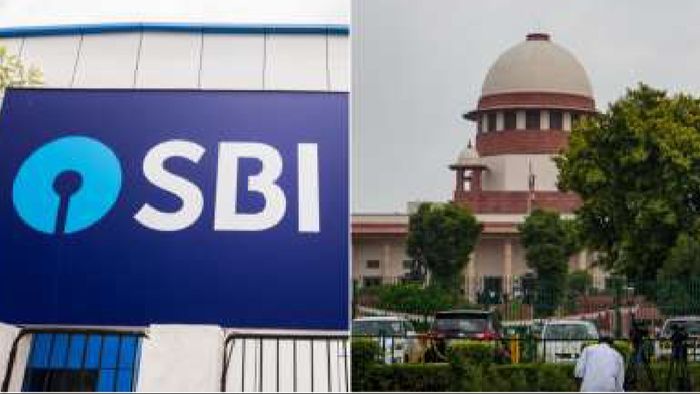Contempt petition filed against SBI in Supreme Court over non-disclosure of electoral bond details
A contempt petition has been filed in the Supreme Court concerning the State Bank of India's (SBI) non-disclosure of electoral bond details. Advocate Prashant Bhushan, on Thursday, March 7, sought an expedited hearing for the Association for Democratic Reforms (ADR) against SBI.

- Mar 07, 2024,
- Updated Mar 07, 2024, 1:50 PM IST
A contempt petition has been filed in the Supreme Court concerning the State Bank of India's (SBI) non-disclosure of electoral bond details. Advocate Prashant Bhushan, on Thursday, March 7, sought an expedited hearing for the Association for Democratic Reforms (ADR) against SBI.
This is in connection with SBI's alleged non-compliance with the Supreme Court's order to provide information on electoral bonds. This development comes amid an ongoing battle for financial transparency in political funding, particularly related to the contentious electoral bonds scheme.
Despite the Supreme Court's ruling on February 15, SBI has yet to submit the required details to the Election Commission of India (EC). As per the same directive, the EC is expected to publish this information on its official website by March 13.
Bhushan brought up the urgent listing of the contempt petition that Chief Justice of India DY Chandrachud was facing. According to Bhushan, the SBI has submitted an application, which is probably going to be listed on Monday, requesting an extension of time until June 30 to provide the information.
He asked that the SBI's application be listed with the contempt petition as well. Bhushan was instructed by CJI to email a request containing the application number. A Supreme Court constitution panel last month ordered the State Bank of India to provide the Election Commission of India with information on all electoral bonds bought from April 12, 2019, by March 6.
Nevertheless, the bank applied for an extension until June 30 days prior to the deadline, citing the difficulty in interpreting and gathering information from the bond sales.
In an attempt to derail transparency efforts ahead of the forthcoming Lok Sabha elections, ADR has filed a contempt petition against SBI's request for an extension, calling it "mala fide." The group contends that SBI's IT system is up and running, and that it has the infrastructure required to gather and publish data on election bonds. Given that the bank holds records of the unique numbers allocated to each bond and the Know Your Customer (KYC) details of purchasers, the petition raises doubts about SBI's purported difficulties in gathering data.
The petition also emphasises the significance of openness in political funding, contending that citizens have an inalienable right to know about the substantial quantities of money that political parties receive in electoral bond contributions. In order to increase political funding transparency, the Supreme Court ordered SBI to reveal information about bond buyers and political parties that received funding through electoral bonds. These orders were part of the court's ruling in the electoral bonds case.
Also read: NDA to win 22 out of 25 seats from Northeast in LS elections, claims Himanta Biswa Sarma